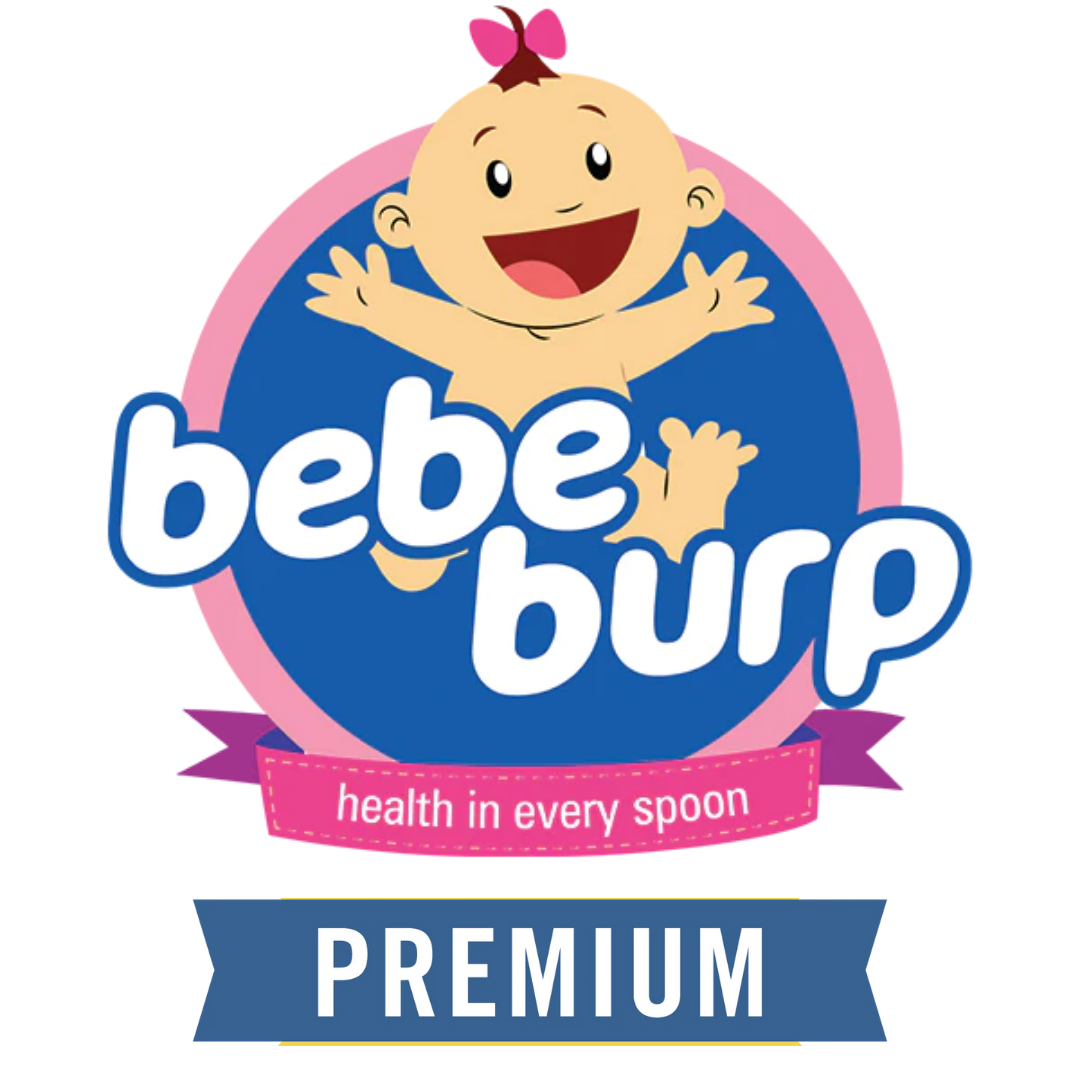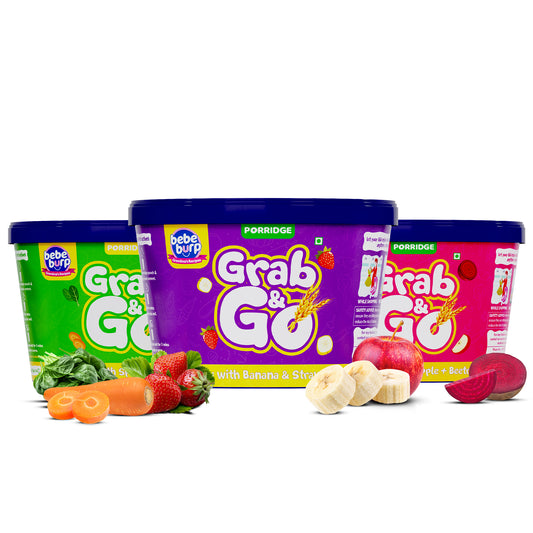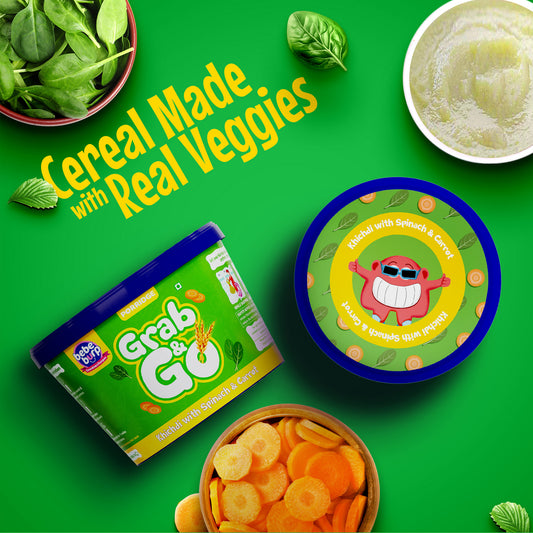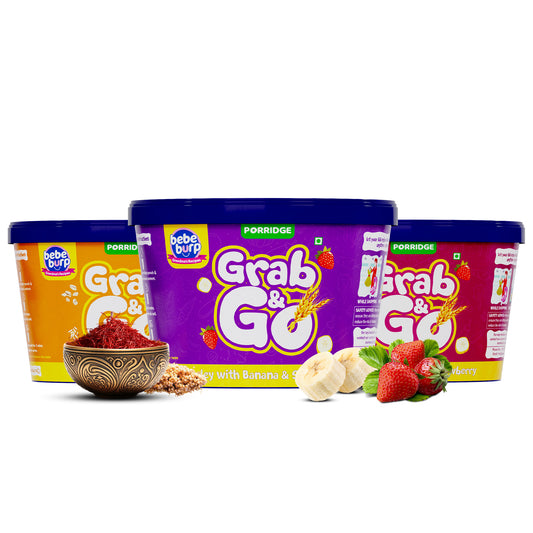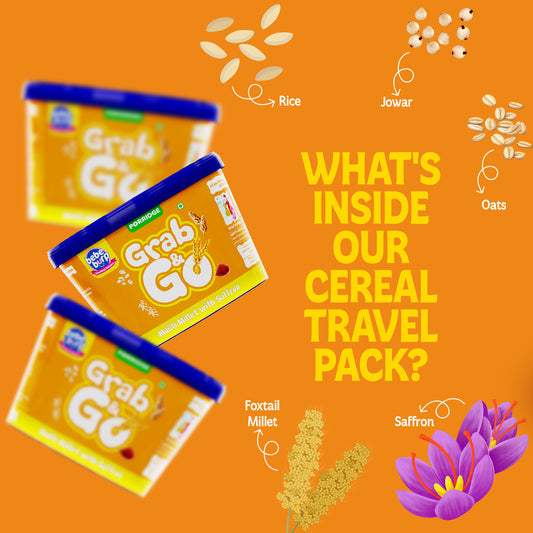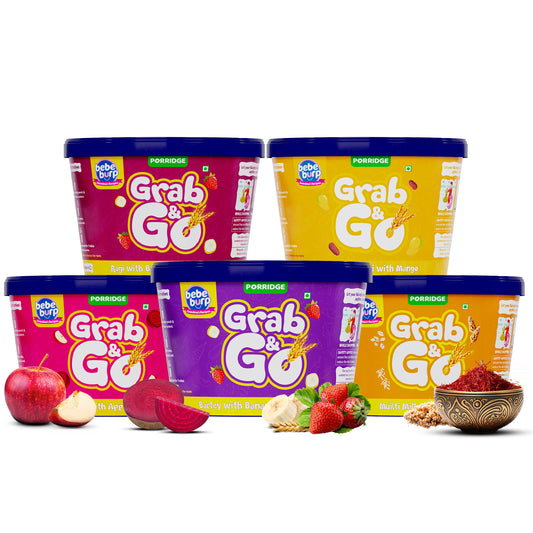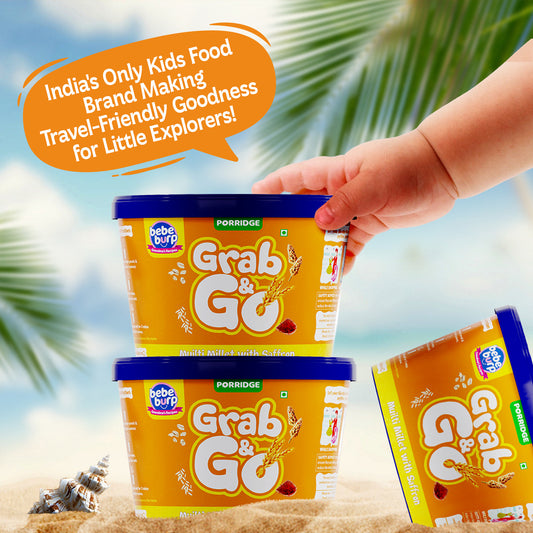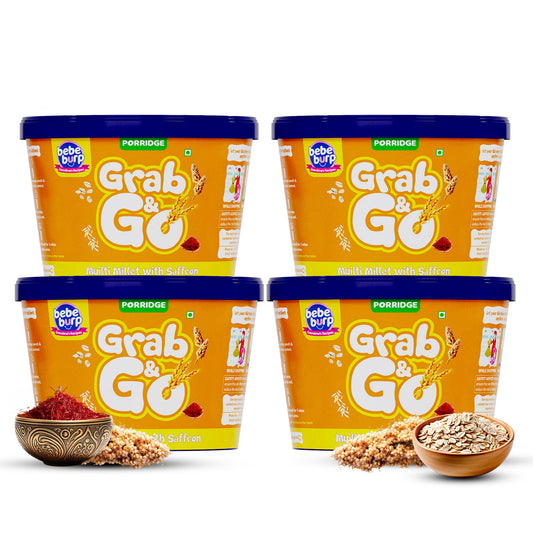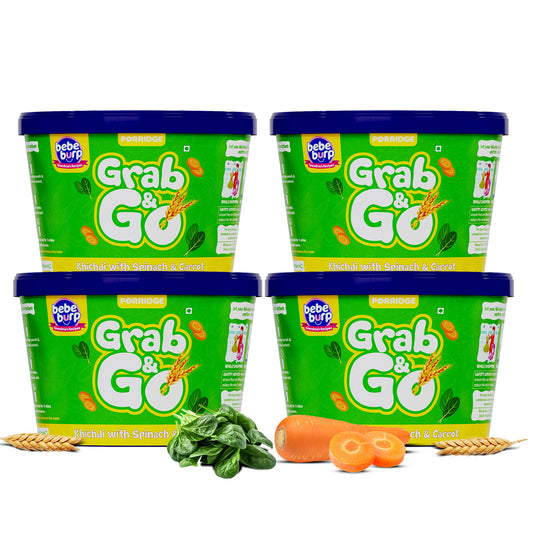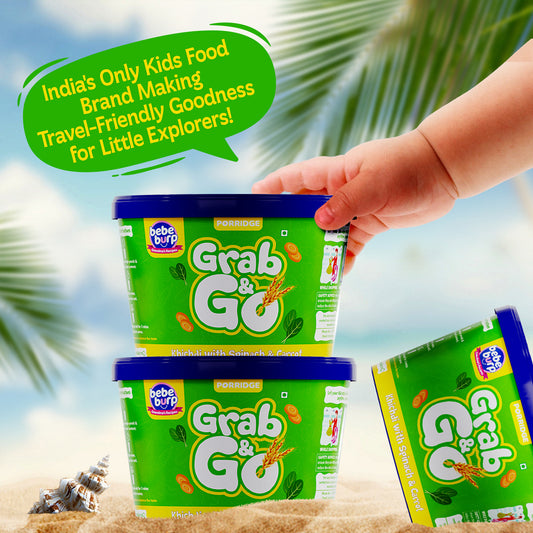Ragi vs Bajra Nutrition deals with the question of which millet provides extra health value for children and families.
Finger millet which is the ragi contains lots of calcium and fibre which makes the bones strong and helps the stomach feel good.
Pearl millet, or Bajra, contains more protein and iron and gives us the energy to be active. Both are super healthy, but each one has its own special benefits.
This blog will help you know which one is better for your child's growing body.
What are Ragi and Bajra?
Two very popular millets of Ragi (Finger Millet) and Bajra (Pearl Millet), have become staple for the Indian household for generations.
Carbonated beverages as well as diet beverages are rich in nutrients that make them extremely valuable for your health. But how do they measure up nutritionally to raise children and families?
Ragi is rich in iron, calcium, and dietary fiber therefore, makes an excellent bone and digestive health option.
The other variety, on the other hand, that of Bajra, is famous for its high protein, iron and magnesium content, which leads to build up of energy and general strength.
Are Ragi and Bajra the Same?
No, bajra and ragi are different. Though both are millet types, they are different grains, have different names and different nutritional value. The other names for Bajra are pearl millet and ragi is called finger millet.
|
Feature |
Ragi (Finger Millet) |
Bajra (Pearl Millet) |
|
Scientific Name |
Eleusine coracana |
Pennisetum glaucum |
|
Appearance |
Small, reddish-brown seeds |
Larger, greyish-green seeds |
|
Taste |
Mild and nutty |
Earthy and slightly bitter |
|
Nutrients |
Very high in calcium and iron |
Rich in iron, protein, and fiber |
|
Climate Grown In |
Cooler highlands |
Hot and arid regions |
|
Common Uses |
Ragi flour for porridge, dosa, roti |
Bajra roti, khichdi, porridge |
Both are gluten-free and considered healthy grains, popular in traditional Indian diets.
Ragi and Bajra Nutrition – Side by Side Comparison
Below is a side-by-side comparison of the nutritional values found in Ragi and Bajra:
|
Nutrient |
Ragi (per 100g) |
Bajra (per 100g) |
|
Calories |
336 kcal |
361 kcal |
|
Protein |
7.3 g |
11.6 g |
|
Fiber |
3.6 g |
1.2 g |
|
Iron |
3.9 mg |
8 mg |
|
Calcium |
344 mg |
42 mg |
|
Magnesium |
137 mg |
137 mg |
Ragi is superior in calcium and fiber, and Bajra outshines in protein and iron. Both are great for improving the nutritional intake of children and adults, too.
Health Benefits of Ragi and Bajra
Ragi
- Rich in Calcium: A Proper plant-based source of calcium supporting bone and dental health, and preventing osteoporosis.
- Aids Digestion: High dietary fiber consumption helps bowel movements and prevents colon cancer.
- Blood Sugar Control: Has fiber and antioxidants that slow the absorption of glucose, useful in diabetes care.
- Heart Health: Sodium-free, cholesterol-free free and with antioxidants for better blood flow and decreased LDL cholesterol.
- Supports Weight Loss: Fiber, high, keeps you full longer, and the tryptophan helps with weight management.
- Boosts Immunity: Is rich in proteins, amino acids, minerals such as iron, potassium, and magnesium.
Bajra
- Nutrient-Dense: Serves protein, fiber, iron, magnesium, copper, phosphorus and manganese.
- Digestive Health: High fiber aids the digestive process, helps avoid constipation and supports gut health.
- Heart Health: Phytonutrients can reduce free radicals and lessen the danger of heart disease. Magnesium regulates blood pressure.
- Diabetes-Friendly: High fiber and slow the release of glucose maintain a blood sugar level.
- Energy Boost: Magnesium converts food-to-energy, eliminating fatigue.
- Bone Strength: Is calcium and phosphorus rich; hence it makes bones stronger and teeth stronger.
- Immunity Support: Antioxidants and nutrients strengthen the body's immunity against diseases.
Both millets are also low-GI, health-friendly for diabetics and contain varying nutritional benefits that benefit individual needs.
How to Include Ragi and Bajra in Your Child’s Diet
1. Porridge
Ragi Porridge:
- Place ragi flour in a pot with water or milk and stir until it boils.
- Blend in a small amount of salt or some sugary sweeteners for taste.
- Fruits such as bananas or apples also mix well if you want to take it a step further.
- An added bonus, this is a filling meal and very gentle on the stomach.
Bajra Porridge:
- Add bajra grains to hot water until they soften.
- Follow this up by pouring in some milk and sprinkle a bit of sugar or even honey for sweetness.
- Nuts and even raisins also work well in further enhancing the taste.
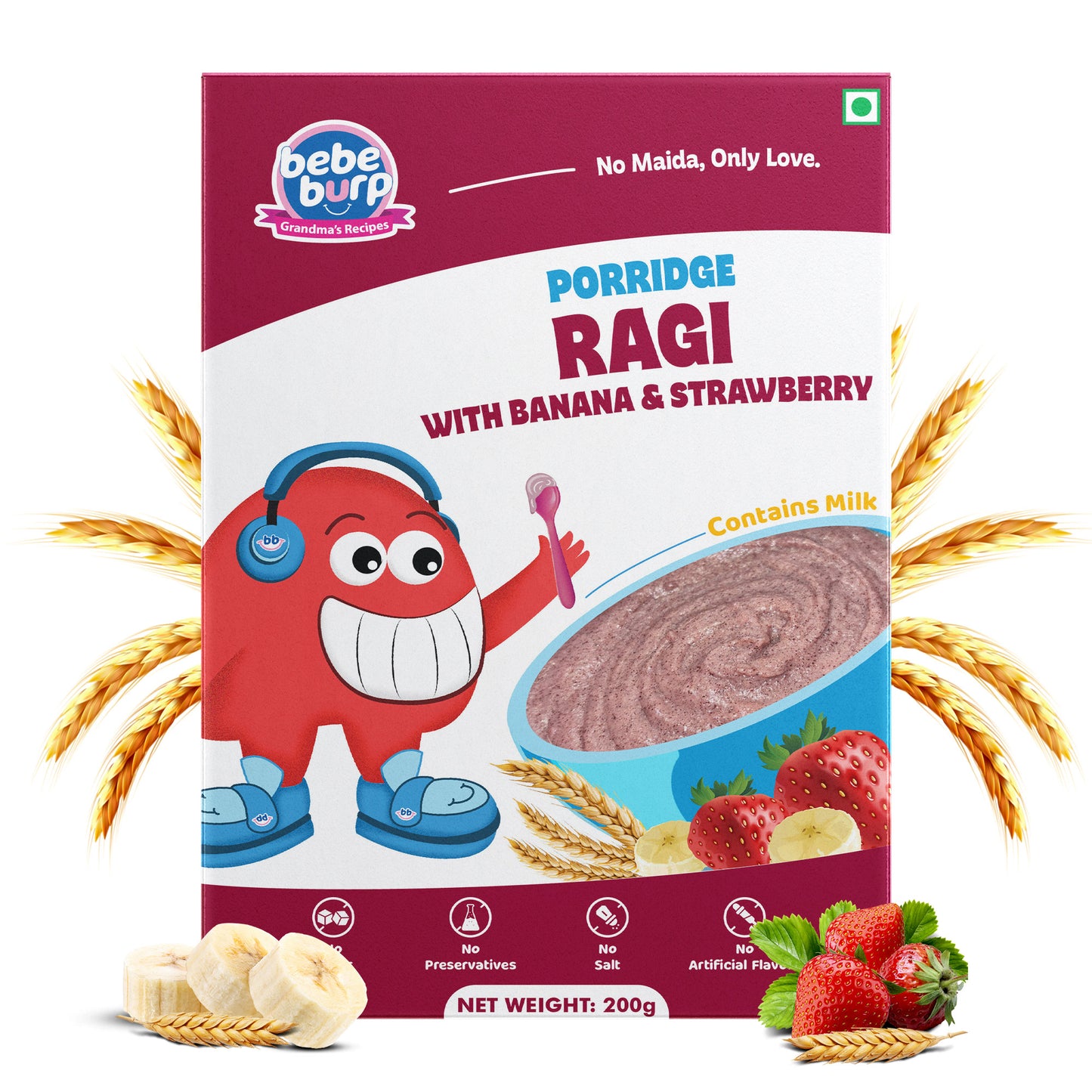
Ragi with Strawberry & Banana – 200g
A fruity and nutritious porridge packed with ragi, strawberry & banana. Rich in iron, calcium & fiber – perfect for growing kids!
Rs. 299
Buy Now2. Bread
Ragi Bread:
- Blend ragi flour with whole wheat flour, Ragi flour is high in protein and this will be an appetizing treat children would never want to miss.
- Try blending in fruits or nuts to add even more nutrients to sweeten the deal.
Bajra Bread:
- You can use bajra flour to make bread, adding in a few makes, eggs, or milk will do wonders for the final product.
3. Snacks
Ragi Cookies:
- Make cookies with ragi flour and bake them.
- Adding in some dried fruits and cocoa powder would form a taste bomb.
Bajra Puffs:
- Once you roast the bajra grains, they will be fluffed and crispy, ready to season with sweet salt.

Ragi Cookies – 150g (2 Pack)
Made with wholesome ragi flour, these cookies are rich in calcium and fiber – a perfect guilt-free treat for your little one’s snack time!
Rs. 398
Buy Now4. Creative Recipes
Ragi Pancakes:
- Ragi flour works well in making pancakes, don’t forget to top it off with chilling and warm maple syrup or honey for an extra sweet kick.
Bajra Popcorn:
- Pop bajra grams to create popcorn puffs, a snack fun to munch on and healthy.
Conclusion
The addition of these foods to a family's diet can greatly enhance health by providing critical nutrients needed for development and stamina—both Ragi and Bajra are nutritional powerhouses that provide distinct health benefits for children and the whole family.
